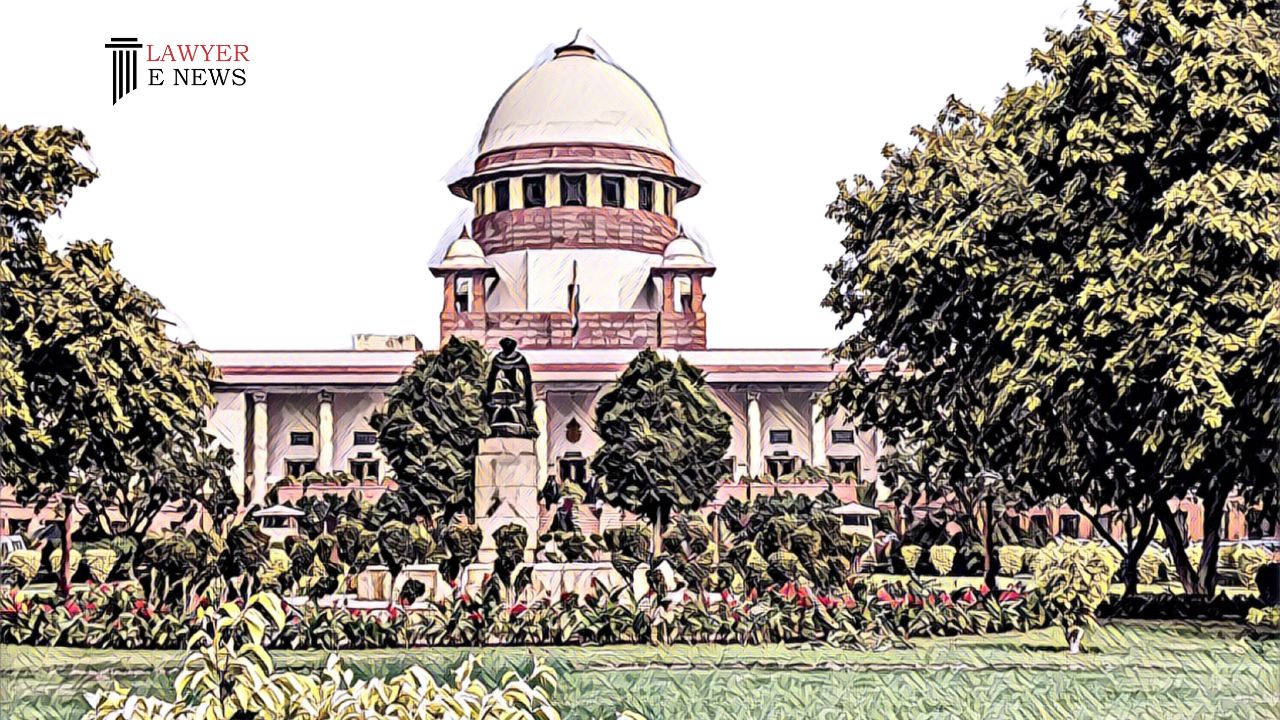-
by sayum
14 February 2026 2:22 PM



“High Court’s failure to consider age, health, and sentence served is troubling,” says Supreme Court
The Supreme Court has granted bail to Bherulal, a 70-year-old convict with significant visual impairment, after criticizing the High Court of Madhya Pradesh for its casual and mechanical rejection of his plea for suspension of sentence. The bench, consisting of Justices J.B. Pardiwala and Ujjal Bhuyan, emphasized the need for courts to apply correct principles when considering the suspension of fixed-term sentences, especially in cases involving elderly and ailing individuals.
Bherulal was convicted by the First Additional Sessions Judge, Mandsaur, Madhya Pradesh, for offenses under Sections 420, 467, 468, 471, 120-B, and 201 of the Indian Penal Code, and sentenced to four years of rigorous imprisonment with a fine of Rs 5,000. After serving two years of his sentence, Bherulal appealed to the High Court of Madhya Pradesh, seeking suspension of his sentence and bail pending appeal. Despite multiple applications, the High Court consistently rejected his pleas without substantial reasoning, leading to the filing of a Special Leave Petition before the Supreme Court.
The Supreme Court was unequivocal in its criticism of the High Court’s handling of Bherulal’s applications. “Stereo type orders are passed by the High Courts without any application of mind,” the bench observed, highlighting the lack of detailed reasoning in the High Court’s decisions. The Supreme Court noted the High Court’s failure to consider Bherulal’s age, his significant visual impairment, and the fact that he had already served half of his sentence.
The Supreme Court reiterated the established legal principle that appellate courts should liberally consider suspension of sentences for fixed terms unless there are exceptional circumstances to deny such relief. “There is nothing observed by the High Court in its impugned order as to why the plea for suspension of sentence deserved to be declined,” the bench stated, emphasizing that no exceptional circumstances were noted to justify the High Court’s decision.
The Supreme Court took into account Bherulal’s advanced age and severe health condition, noting that he is “virtually blind” and has already served two years of his four-year sentence. The Court remarked that the High Court’s casual approach necessitated the intervention of the Supreme Court, which could have been avoided had the High Court applied the correct legal principles.
Justice Pardiwala remarked, “The High Court should have realized that the petitioner is seventy years of age and out of four years of maximum sentence imposed, has already undergone two years’ of sentence. The petitioner is virtually blind. There is nothing on record to indicate that his release on bail pending appeal would thwart the course of justice.”
The Supreme Court’s decision to grant bail to Bherulal underscores the judiciary’s responsibility to consider the unique circumstances of each case, particularly involving elderly and ailing convicts. By highlighting the High Court’s oversight and emphasizing the proper application of legal principles, this judgment reinforces the need for thoughtful and reasoned judicial decisions. The Supreme Court’s order not only provides immediate relief to Bherulal but also serves as a crucial reminder for lower courts to exercise their discretion judiciously and compassionately.
Date of Decision: July 03, 2024
Bherulal v. The State of Madhya Pradesh
